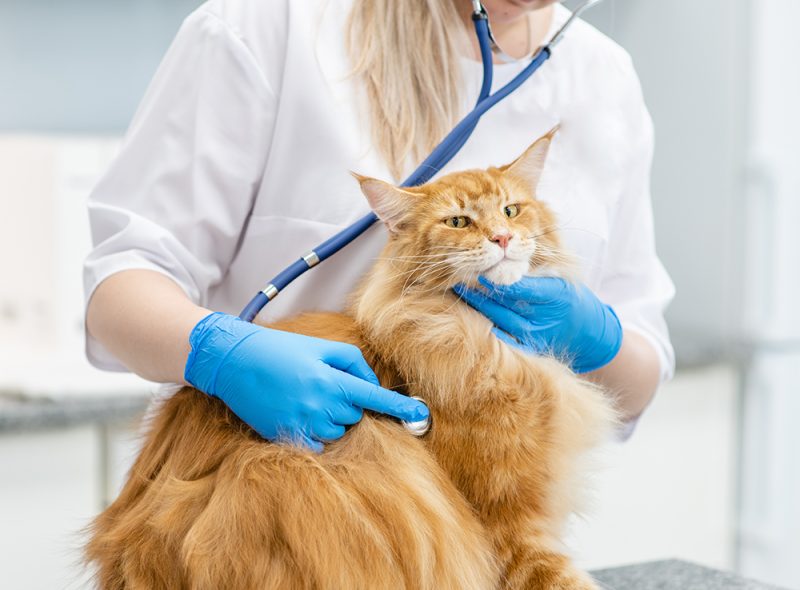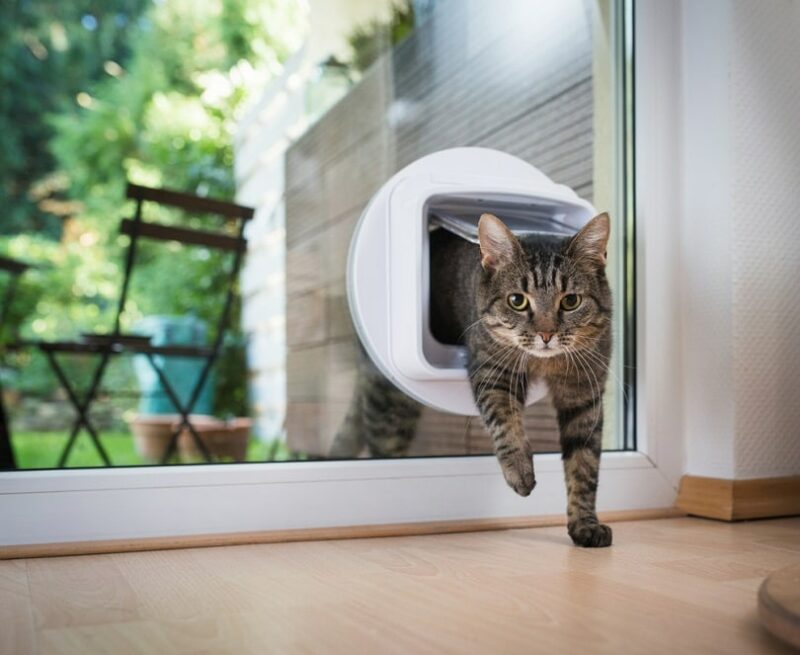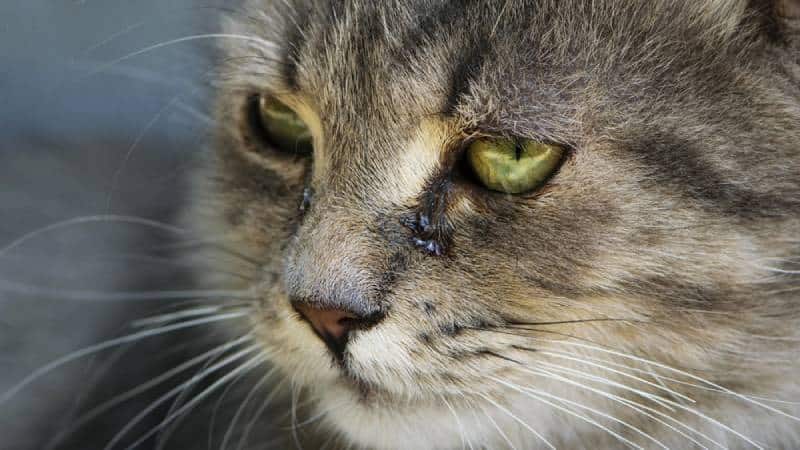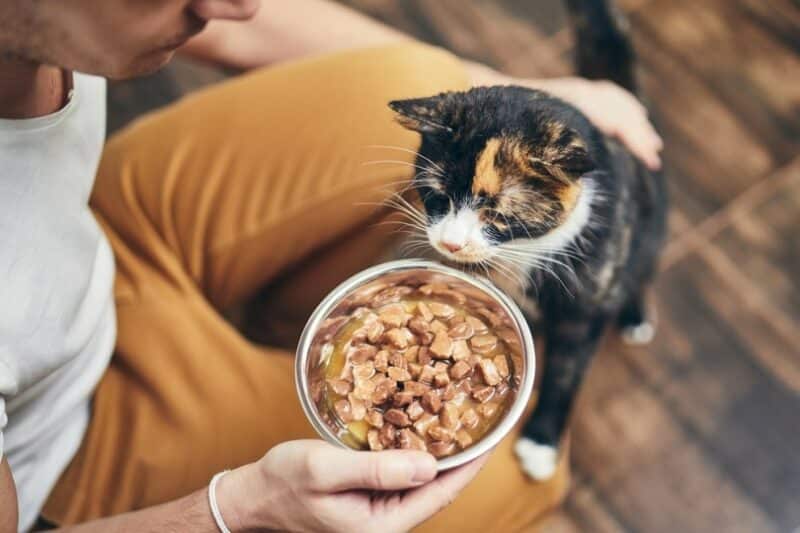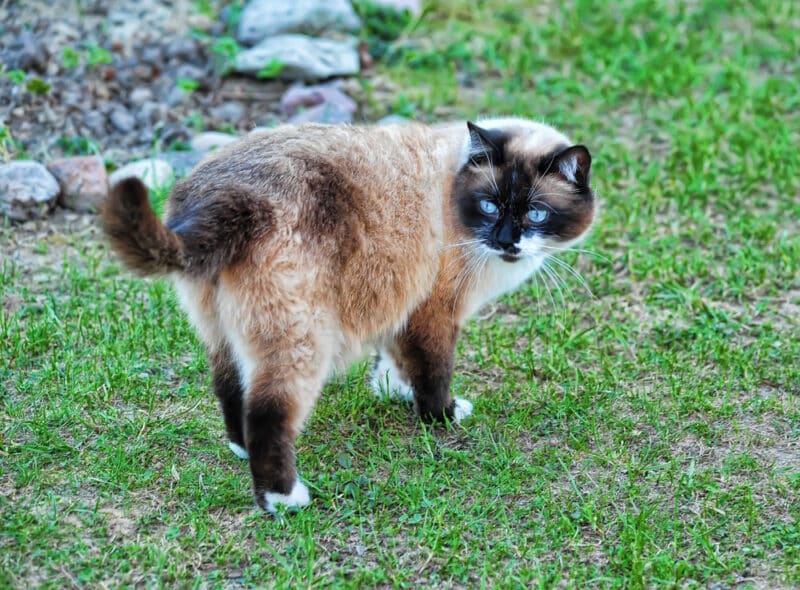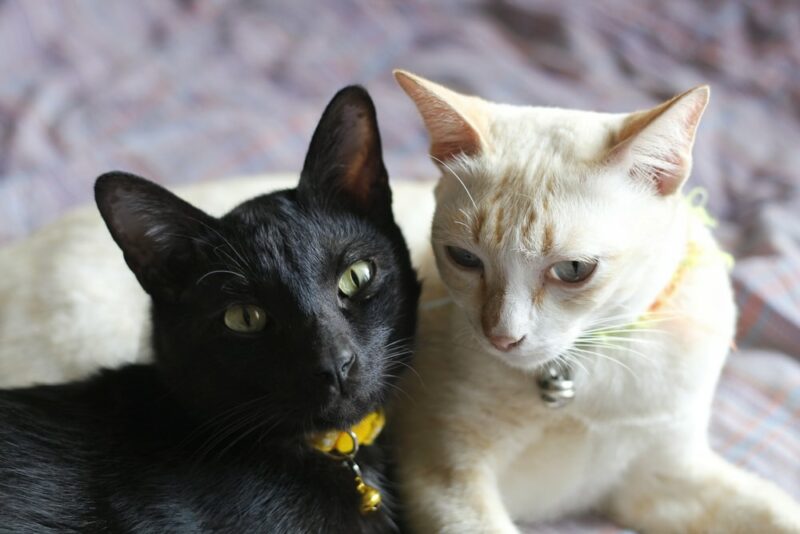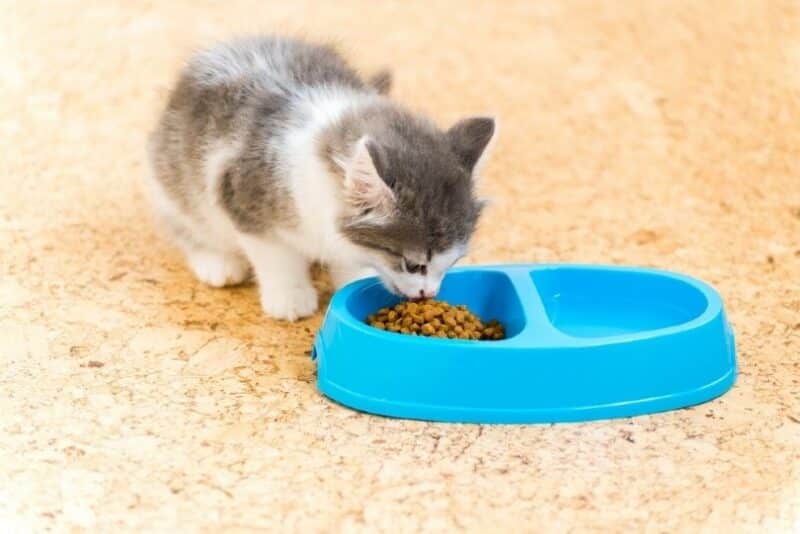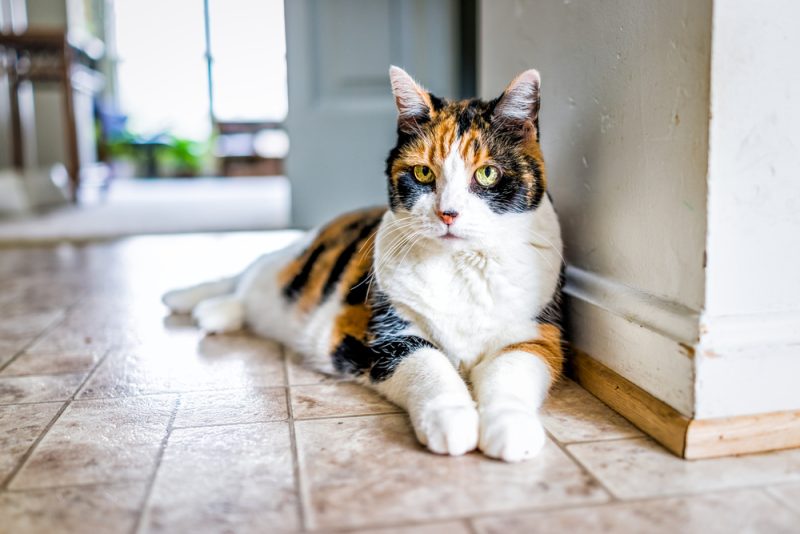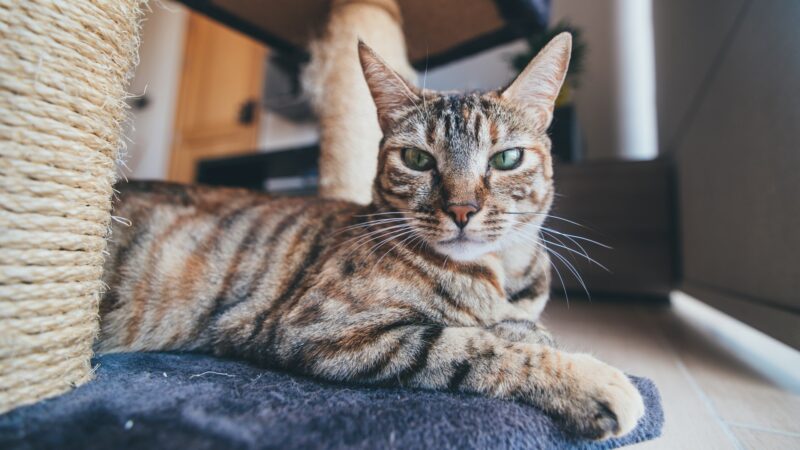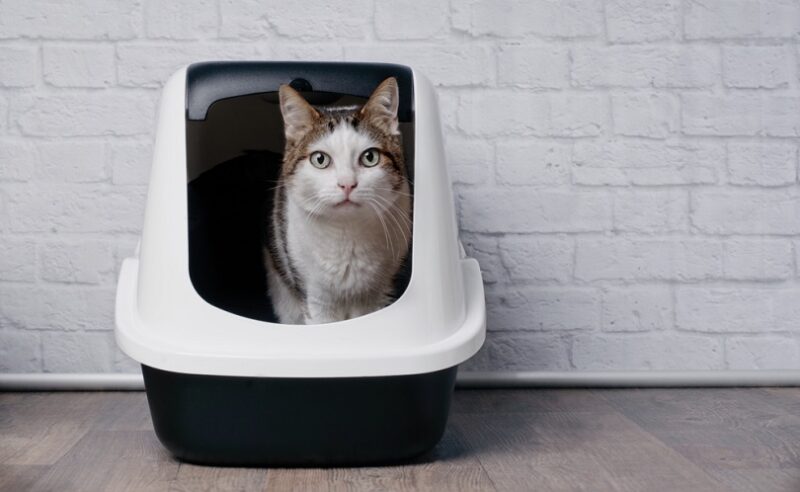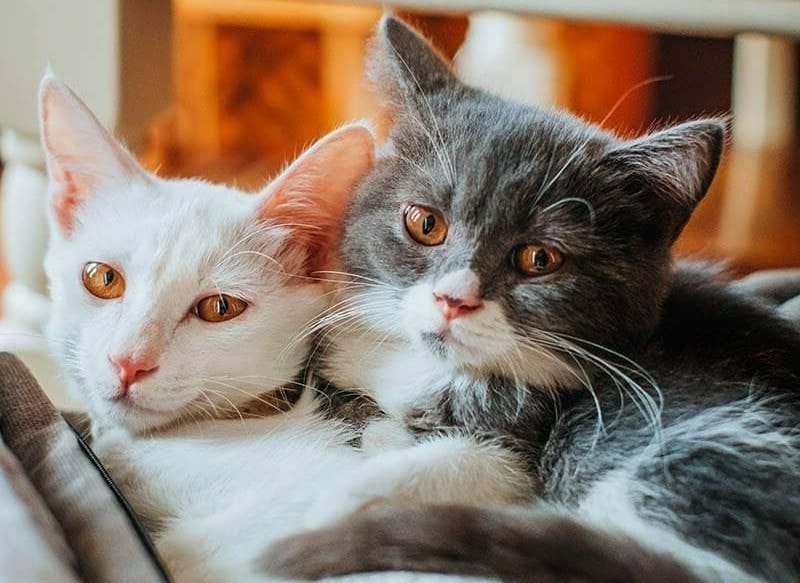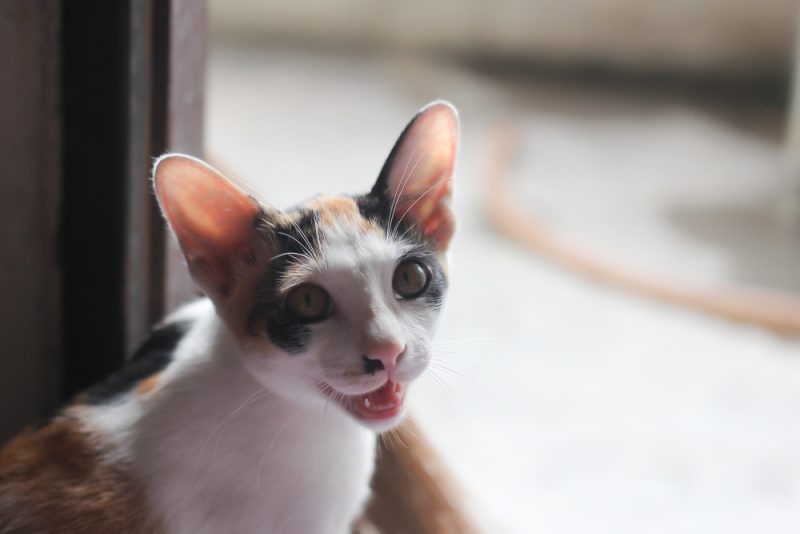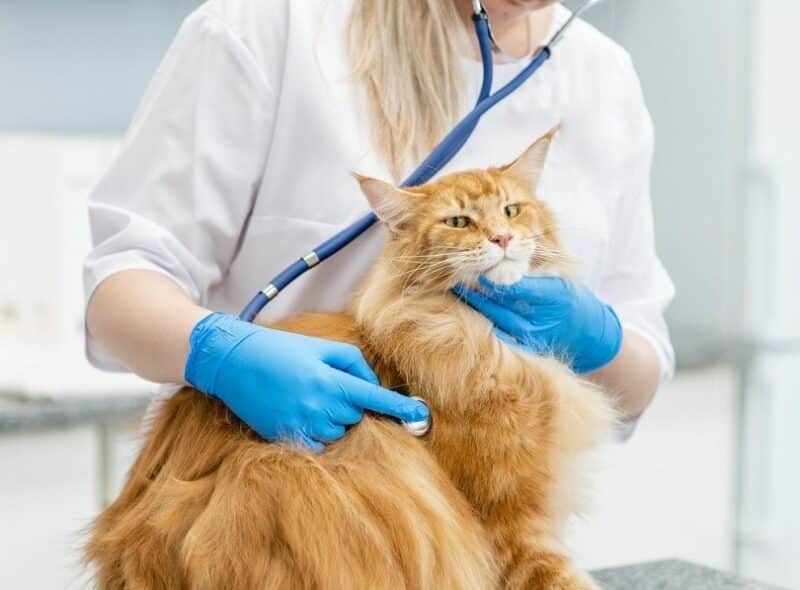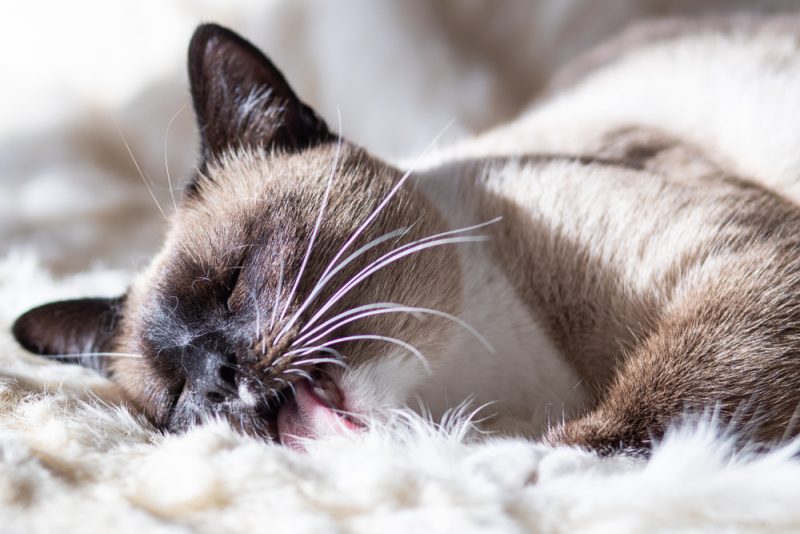Pancreatitis is the medical term describing inflammation of the pancreas—an organ that produces certain hormones, like insulin, as well as digestive enzymes to help the body absorb food.
Any species can develop pancreatitis, which is generally considered to be a very painful experience, according to humans who have had the condition. Cats are uniquely predisposed to develop pancreatitis, due to some unique differences in how their pancreas connects to the rest of their gastrointestinal tract. It is helpful to know the condition is manageable with medications, though it can recur.
Read on to learn more about pancreatitis in cats.

What is Pancreatitis?
The pancreas in cats is found within their abdomen, between the stomach and small intestine, and has a slightly different anatomy than most other species. Instead of two separate ducts that allow produced enzymes and substances to exit the organ, there is generally only one, which makes cats extremely prone to developing blockages or issues with the duct.
The pancreas has two basic functions—to produce hormones, and to help digest food. The hormones made by the pancreas include glucagon and insulin, which help to regulate blood sugar levels. The pancreas also makes digestive enzymes that help breakdown fat, protein, and carbohydrates.
Because some of these substances are quite irritating, if the pancreas becomes damaged, or the duct becomes blocked and these substances back up into surrounding tissue, inflammation and discomfort can result. This is what causes pancreatitis.
The same pancreatic duct that can become blocked also serves to connect the pancreas to both the small intestine and the gall bladder. Therefore, in the event of a duct blockage, inflammation in the pancreas can also travel into a cat’s gall bladder, depending on where the blockage occurs.
Because the liver also shares small ducts with these two organs, it too can develop inflammation if either the pancreas or gall bladder have problems. This is a unique condition in cats referred to as “triaditis”.
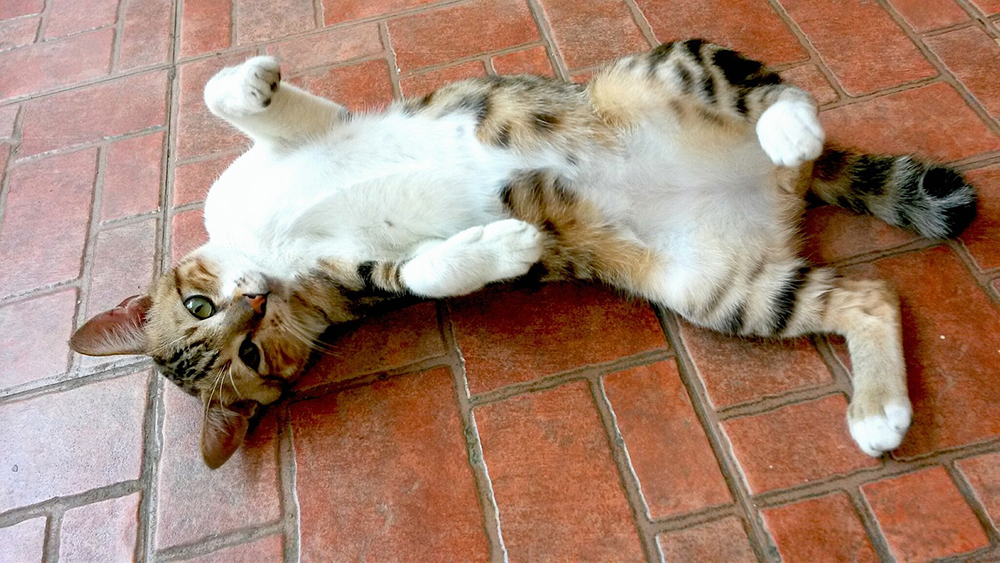
What Are the Causes of Pancreatitis in Cats?
Causes of pancreatitis in cats can originate from any of the three following organs: liver, gall bladder, and pancreas. Viral or bacterial infections, abscesses, parasites, cancer, or gall stones can all potentially lead to pancreatitis.
Cats can also get something called fatty liver syndrome, when their liver largely stops working, which may also play a role in pancreatitis. Diabetes, inflammatory bowel disease, and small cell lymphoma are all relatively common cat diseases that impact tissues in the region including the pancreas. As such, these may also play a role in pancreatitis.
Trauma, such as a fall or being struck by a vehicle, may also cause pancreatitis, as can ingesting something that is toxic.
Unlike dogs, where eating food that is too fatty (or too much fatty food) seems to play a large role in the development of pancreatitis, diet currently doesn’t appear to play a role in the development of pancreatitis in cats. In many cases of feline pancreatitis, the cause is never identified, and the condition is simply managed by treating the clinical signs until the cat feels better.
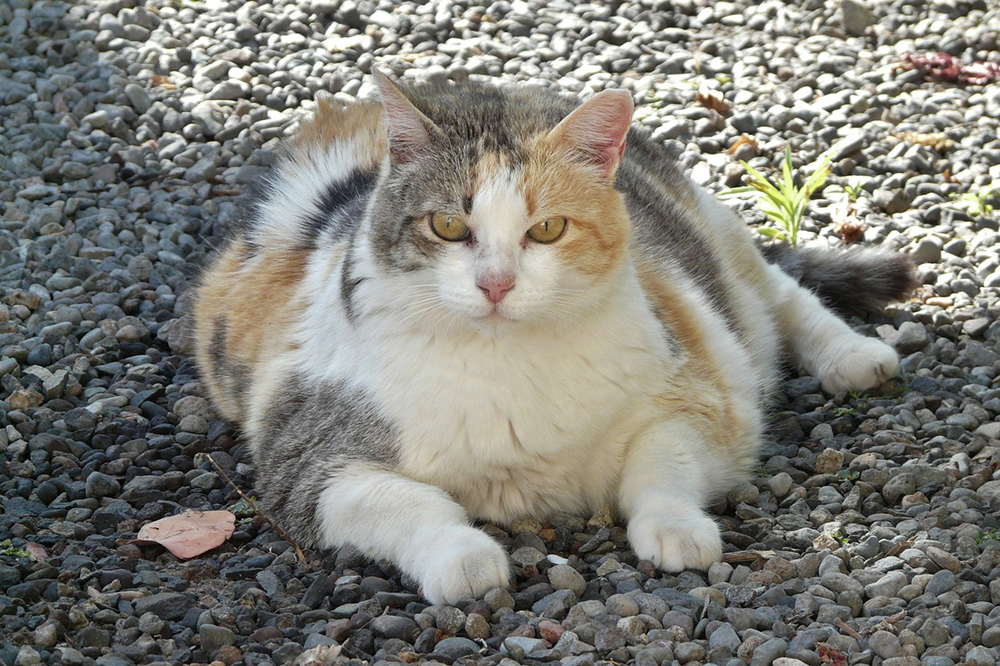
Where Are the Signs of Pancreatitis in Cats?
Signs of pancreatitis in cats can vary widely. Often, clinical signs will relate to the gastrointestinal tract, as pancreatitis impacts this area of the body quite heavily. When this happens, you may see:
- Decreased or no appetite
- Decreased or lack of thirst
- Vomiting food or bile or liquid
- Sleeping more
- Fever
- Hiding or other changes in behavior
- Abdominal pain, such as laying in uncomfortable positions, or not wanting to be picked up
- Weight loss
- Yellowing of the gums and eyes
- Dehydration
- Hair loss or a poor haircoat
- Lack of grooming
- Diarrhea
- White or fatty stools
If your pet is showing these signs, we suggest you speak to a vet.
If you need to speak with a vet but can't get to one, head over to PangoVet. It's an online service where you can talk to a vet online and get the advice you need for your pet — all at an affordable price!

What Are the Potential Dangers of Pancreatitis in Cats?
The dangers of pancreatitis are concerning, primarily if left untreated. If left untreated, cats can stop eating, and develop malnutrition, or nutritional deficiencies.
As a species, cats have a unique condition called “Fatty Liver Syndrome”, that can develop if a cat doesn’t eat for very short periods of time. This is where their liver shuts down, which requires intensive treatment, and hospitalization.
Other dangers include a risk of diabetes developing if the pancreas is impacted by the inflammation, and unable to produce adequate amounts of insulin. Scar tissue from the inflammation, if it continues long enough, can also lead to permanent impairment of pancreatic function. This can mean lifelong diabetes, or difficulties in being able to digest food.
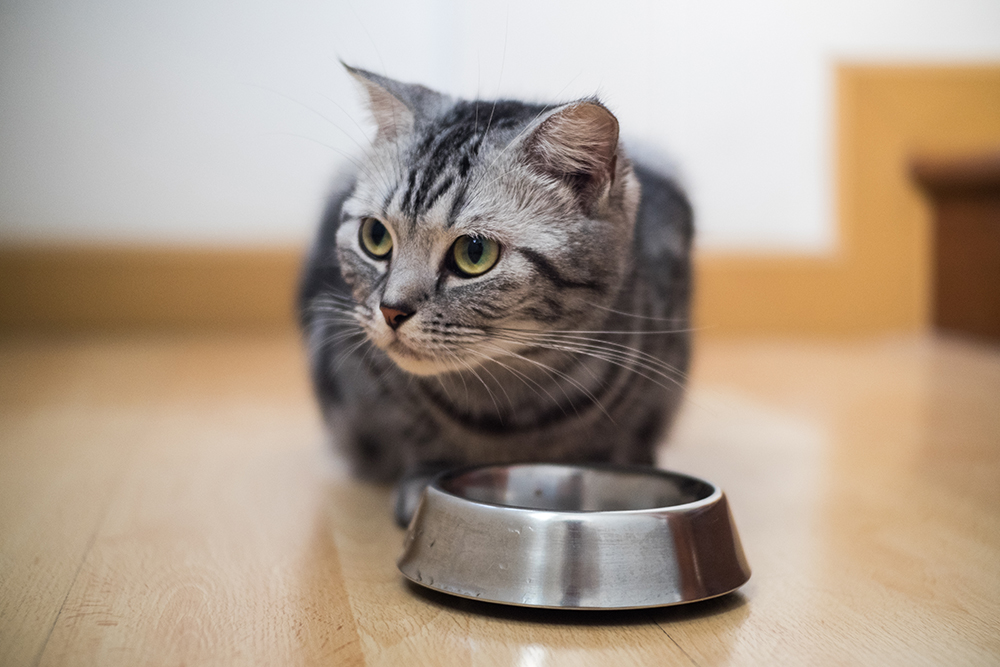

Frequently Asked Questions (FAQs)
What can I do at home to help a cat with suspected pancreatitis?
First, reach out to your vet. Often, they will want to see your cat within a day or two. Once back home, ensure your cat gets any prescribed medication, and keep a close eye on their behavior once they’ve been diagnosed with pancreatitis. Monitor their eating and drinking, and ensure that they are using the litterbox. If your cat seems to be getting worse, it’s time to call your vet again.
Are there foods to avoid to prevent or help with pancreatitis?
Unlike with dogs, there does not presently appear to be foods that cause or aid in the development of pancreatitis in cats. There are, however, prescription diets that a vet may prescribe once a cat has pancreatitis, that are easier to digest than typical foods, or that are considered to be a bit blander.
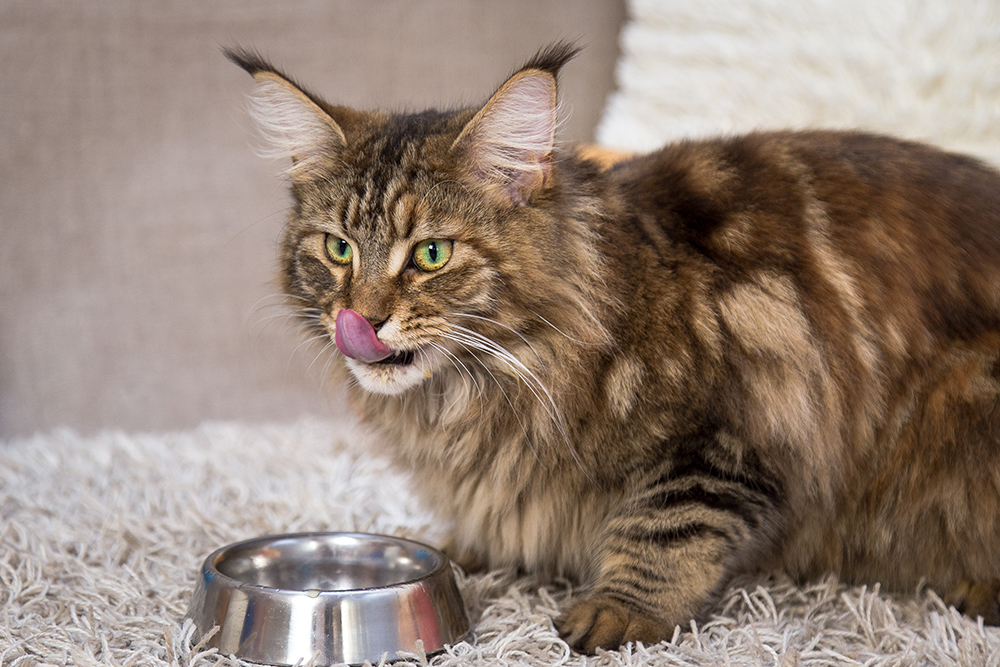
Is pancreatitis contagious?
No, one cat with pancreatitis shouldn’t cause concern for other cats developing the same. They can share litterboxes, food and water bowls, and groom each other as normal.
Can my cat go outside if he has pancreatitis?
If your cat wants to go outside, it is probably ok that they do. However, it is generally easier to keep an eye on your cat when they aren’t feeling well if they’re kept indoors.
How is pancreatitis diagnosed?
Although clinical examination and medical history can raise concerns about pancreatitis, blood testing, and sometimes an ultrasound, are more definitive in determining if a cat is suffering from pancreatitis.
Blood tests can include red and white blood cell counts, blood sugar levels, liver enzymes, B vitamin levels, and a pancreatic enzyme. Ultrasound involves a scan of the abdomen, to look for visual changes in the pancreas and surrounding organs that might indicate inflammation.
Sometimes needle biopsies will be recommended as part of this process, to look for infections or other abnormalities.
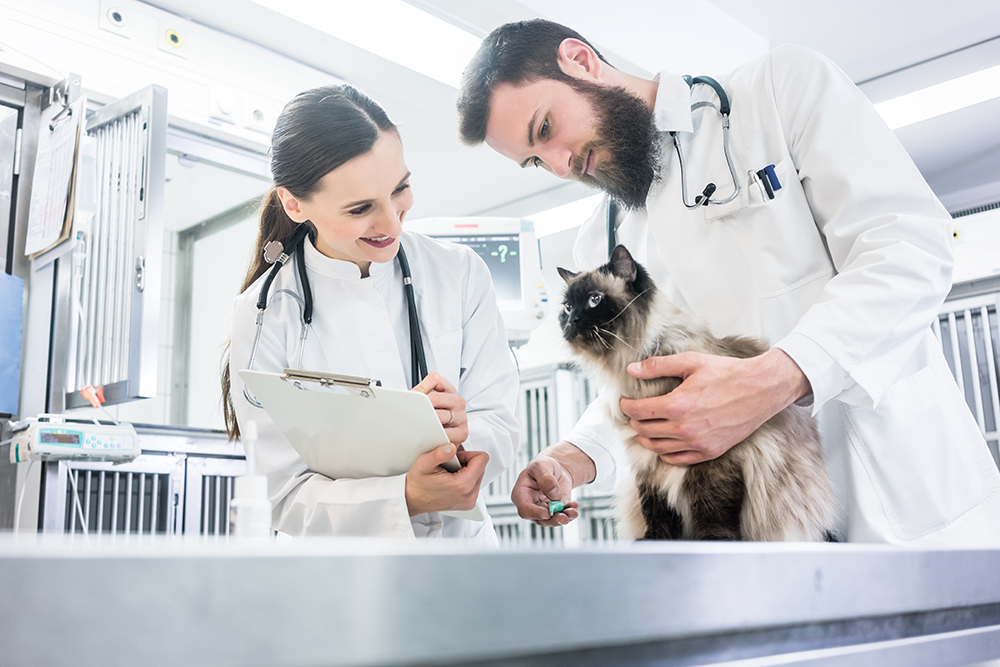
What treatments are available for cats with pancreatitis?
Treatments can include anti nausea medication, appetite stimulants, and anti-inflammatory medications, just to name a few.

Conclusion
Pancreatitis in cats can range from mild to severe. If you suspect your cat may have this condition, the first thing to do is call your vet and explain what you’re seeing. Often, your vet will want to do an examination, and then proceed to diagnostics to determine the next best steps, based on how severe the condition is. Fortunately, many cats with pancreatitis can be managed at home, and will often recover with the aid of their treatment.
Featured Image Credit: Ermolaev Alexander, Shutterstock
